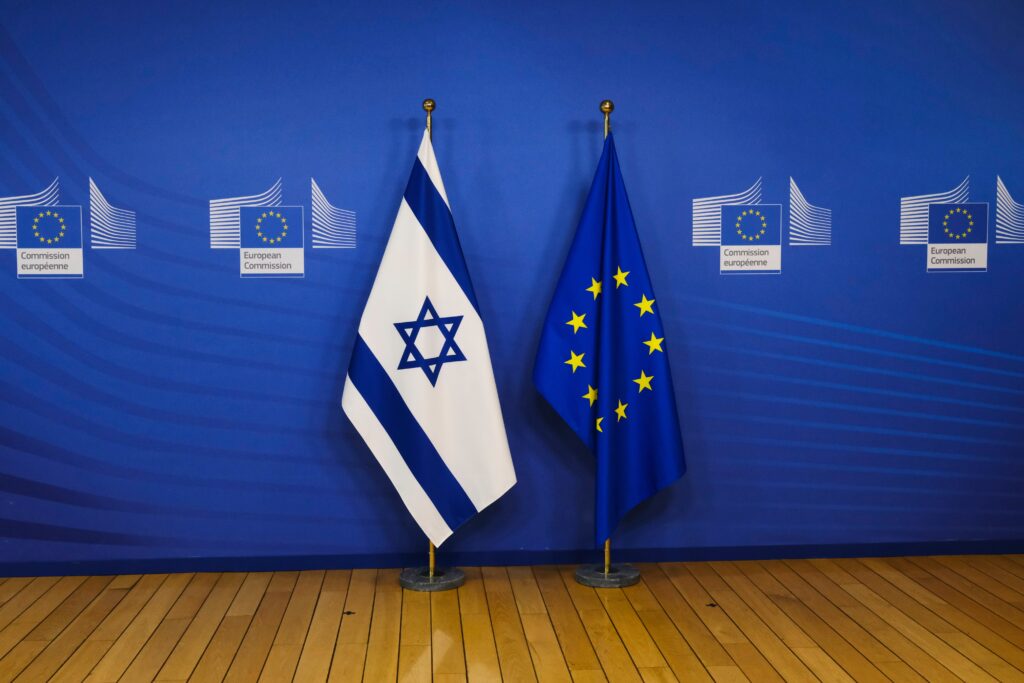EU Foreign Policy Chief Josep Borrell has suggested suspending political discussions with Israel over alleged human rights violations and international law breaches in Gaza. Despite strong opposition from several EU countries, Borrell aims to signal growing concerns over Israel’s actions.
EU Foreign Policy Chief Proposes Suspension of Talks with Israel Over Gaza Conflict
EU Foreign Policy Chief Josep Borrell has proposed suspending political discussions with Israel in light of the ongoing humanitarian crisis in Gaza, marking a significant shift in the European Union’s stance. This proposal, raised during a recent meeting of EU ambassadors, comes amid widespread international condemnation of Israel’s actions in Gaza, including accusations of human rights violations and breaches of international law. Borrell’s suggestion, to be formally discussed at next week’s EU foreign ministers’ gathering in Brussels, aims to address these concerns while sending a strong political message to Israel.
Proposed Suspension Faces Strong Opposition from Several EU Nations
For the proposal to proceed, it requires unanimous approval from all EU member states—a condition that seems unlikely to be met due to strong opposition from several countries, including Germany, Austria, the Czech Republic, and Hungary. These nations, among Israel’s most steadfast EU supporters, have already expressed their disagreement with Borrell’s call, arguing that such a suspension could further escalate tensions between the EU and Israel.
According to diplomats familiar with the discussions, the proposal caught many EU countries off guard and was met with immediate objections from a number of member states. Some EU officials have suggested that Borrell’s goal may not necessarily be to secure an outright suspension, but rather to force EU capitals to take a firm stance on Israel’s military operations in Gaza. In this regard, the proposal is seen as a “political signal” aimed at emphasizing the EU’s concerns about the ongoing conflict and Israel’s military actions.
A Political Signal for Change in EU-Israel Relations
Borrell’s call for a suspension of talks comes against the backdrop of the EU-Israel Association Agreement, which includes binding human rights clauses that some EU nations believe are being violated by Israel’s actions in Gaza. This agreement has been a point of contention for some time. Earlier in 2024, Spain and Ireland pushed for a review of the agreement due to the humanitarian impact of the conflict, arguing that Israel’s military operations violated international law and jeopardized the safety of civilians in Gaza. However, this push was met with significant resistance from Israel’s EU supporters and was ultimately dismissed by the European Commission.
Despite this, the EU’s response to the crisis in Gaza has increasingly centered around calls for greater scrutiny of Israel’s conduct, especially as reports from the region continue to show rising civilian casualties, the destruction of infrastructure, and significant restrictions on humanitarian aid. Israel’s actions in Gaza, particularly its restrictions on the flow of humanitarian aid and accusations of targeting UN-designated safe areas, have attracted mounting international criticism. In this context, Borrell’s proposal is seen by many as an effort to align the EU’s actions with its stated human rights commitments.
Challenges Ahead for EU Foreign Policy
While Borrell’s proposal may not be likely to result in an immediate suspension of talks, it underscores the growing rift within the EU over how to address Israel’s actions in Gaza. The debate is emblematic of the broader challenges the EU faces in balancing its diplomatic relations with Israel against its commitment to human rights and international law. As the situation in Gaza continues to escalate, EU foreign ministers will likely face increasing pressure to take a more assertive stance on the conflict.
The EU’s decision will not only have significant diplomatic implications for its relationship with Israel but will also reflect the Union’s broader approach to global human rights issues. The outcome of next week’s discussions will be a crucial moment in determining the EU’s future role in the Middle East and its ability to influence international efforts to resolve the Gaza conflict.
Conclusion: A Divided EU on Gaza and Israel
As the EU moves toward its foreign ministers’ meeting, it is clear that the proposal to suspend talks with Israel has sparked a deep divide among member states. While some see it as a necessary step to address growing concerns over human rights in Gaza, others view it as a counterproductive move that could harm relations with Israel. With the situation in Gaza continuing to worsen, the coming days will be critical in shaping the EU’s response to one of the most contentious issues in international diplomacy today.
